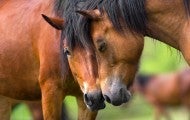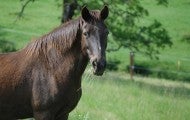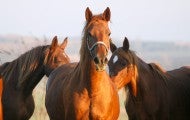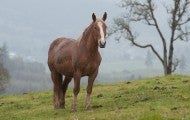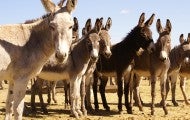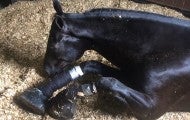The shocking number of animal cruelty cases reported every day is just the tip of the iceberg—most cases are never reported. Unlike violent crimes against people, cases of animal abuse are not compiled by state or federal agencies, making it difficult to calculate just how common they are. However...
Contents How many animals are used in experiments each year? Which animals are used in experiments? What kinds of experiments are animals used in? What kinds of institutions use animals in experiments? Where do laboratories get the animals they use in experiments? What is life like for animals in...
While having a horse in the family can be rewarding, being a successful horse owner requires a great deal of time, money and a lasting commitment to the care and well-being of the animal. The keys to a long-term, successful relationship with a horse are twofold: making sure you choose an appropriate...
The Humane Society of the United States and the Humane Society Legislative Fund are noted champions for the protection and well-being of the nation’s wild horses and burros, and we have strong policy and practical commitments to the humane management of their herds on America’s Western ranges. We...
To thrive, horses require healthy amounts of food and water, adequate shelter and competent care. Horse owners must commit a great deal of time, energy, skill and money to ensuring their horses have everything they need to live a happy, healthy life of thirty years or more. Any time a horse changes...
This list is provided as a resource for horse owners and is for informational purposes only. Please contact specific vendors for more information on their services. Every effort has been made to ensure the accuracy of all listings. This list is not exhaustive and is subject to change over time. The...
Fertility control: Essential to American wild burros and mustangs While wild burros are legally viewed in the same light as the American mustang, protected as a living symbol of the American West, the wild horses often seem to receive most of the public's attention. But burros have played a critical...
Soring involves the intentional infliction of pain to a horse's legs or hooves in order to force the horse to perform an artificial, exaggerated gait. Caustic chemicals—blistering agents like mustard oil, diesel fuel and kerosene—are applied to the horse's limbs, causing extreme pain and suffering...



